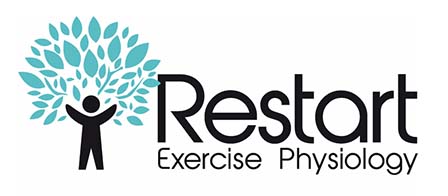Here we find ourselves in year three of a pandemic that none of us were expecting. It’s likely at this point that most of us have experienced a (hopefully mild) case of COVID-19.
Everyone’s experience of the virus is different, so while your COVID symptoms may have been mild and short lived, there are some people who experience symptoms for weeks or months after their initial infection. This is called Long-COVID and is an ongoing health condition that needs specific treatment. Regardless of the severity of the acute infection, people can suffer from Long-COVID, and symptoms can take up to 8 – 10 weeks to appear after the initial infection. Treatment for Long Covid needs to be individualised with people experiencing any combination of over 200 different symptoms.
The research into Long-COVID symptoms treatment is constantly evolving – and we still have a lot to learn. To that end, we’re excited to have recently welcomed Amanda to the team at Restart Exercise Physiology. After experiencing Long-COVID symptoms herself, Amanda has dedicated her time to creating specialised Long-COVID treatment guidelines and rehabilitation programs to help you with your Long-COVID recovery (such is her depth of knowledge, Amanda’s expertise has been enlisted, via webinar presentations, by Queensland Health).
Long-COVID treatment protocol guidelines from the Australian Government recommend enlisting the support of an Exercise Physiologist to help you in your recovery. The team at Restart, buoyed by Amanda’s expertise and resuming exercise after their own acute exposure to the COVID-19 virus, are here to guide you through your treatment for Long-COVID.
What is Long-COVID?
As COVID-19 hasn’t been around for very long, the understanding of what exactly causes Long-COVID, and what the symptoms are is constantly evolving.
What we do know is that Long-COVID is still a risk, even as the initial symptoms of COVID are getting milder as the virus evolves.
Long-COVID, according to the World Health Organisation is also called “Post-COVID-19 Syndrome”, and those who suffer from it are sometimes referred to as “COVID long haulers”.
When the symptoms associated with COVID-19 continue for more than four weeks after the initial infection, you should seek treatment for whichever Long-COVID symptoms you experience – more on those below.
Is Long-COVID something I need to worry about?
People more at risk of Long Covid are those aged 30 – 56 years or have pre-existing health conditions, however it is also common for Long Covid to impact any age or health status.
It is reported in 2023 that approximately 10% of people infected with COVID-19 experience symptoms that continue for more than three months.
There’s also some suggestion that having the virus more than once – which certainly many of us have at this stage – increases the chances that you will experience Long-COVID.
Research shows that even young people who experience COVID-19 have to rebuild their tolerance to exercise after recovery. There is also some evidence to show that females are more likely to experience the condition.
Newer evidence suggests that having the COVID-19 vaccination reduces the risk of developing Long-COVID – so, while it’s absolutely your choice, if you’re able to be vaccinated, it could be a good way to avoid needing COVID long hauler fatigue treatment.
There are plenty of benefits of exercise and reducing your risk of COVID-19 is another to add to the list, according to research.
So, if you are generally healthy, your risk of contracting Long-COVID is less – but it’s worth understanding the treatment for Long-COVID fatigue so you can help yourself or a family member if necessary.
What are Long-COVID symptoms?
Long-COVID presents differently in various people but common Long-COVID symptoms are:
- Ongoing fatigue or extreme tiredness: this could be difficult going about simple, everyday life activities like doing jobs around the house;
- Muscle weakness or aches;
- Shortness of breath or difficulty breathing;
- Anxiety or depression and/or sudden increase in stress;
- “Brain fog” which presents as trouble with memory or concentration;
- Difficulty sleeping;
- Neurological changes such as reduced coordination, issues with temperature regulation or excessive dehydration;
- A persistent cough – many people seek long term COVID cough treatment;
- Chest pain;
- Ongoing change in or loss of sense of smell and taste.
As Exercise Physiologists, we help patients improve strength, decrease fatigue and improve cognitive function through exercise – all important ways to address and alleviate Long-COVID symptoms.
Can an Exercise Physiologist help with Long-COVID treatment guidelines?
While our understanding of COVID-19 continues to evolve, it’s universally agreed that gently easing back into movement is an important Long-COVID treatment protocol.
As long as you are gentle in your return to exercise post-COVID, and if you are unfortunately suffering from Long-COVID, there are many benefits to increasing your movement.
With the support of Amanda’s experience and in depth research, the team at Restart Exercise Physiology can show you how to effectively return to exercise as a form of Long-COVID treatment.
If you or a family member are seeking Long-COVID fatigue treatment, we’ll take the time to understand the severity of your COVID case, your symptoms, your health goals, and build a plan to get you back to optimal health.
Book an appointment with us today!
All information is general and is not intended to be a substitute for professional medical advice. Restart can consult with you to confirm what is right for you.

0 Comments